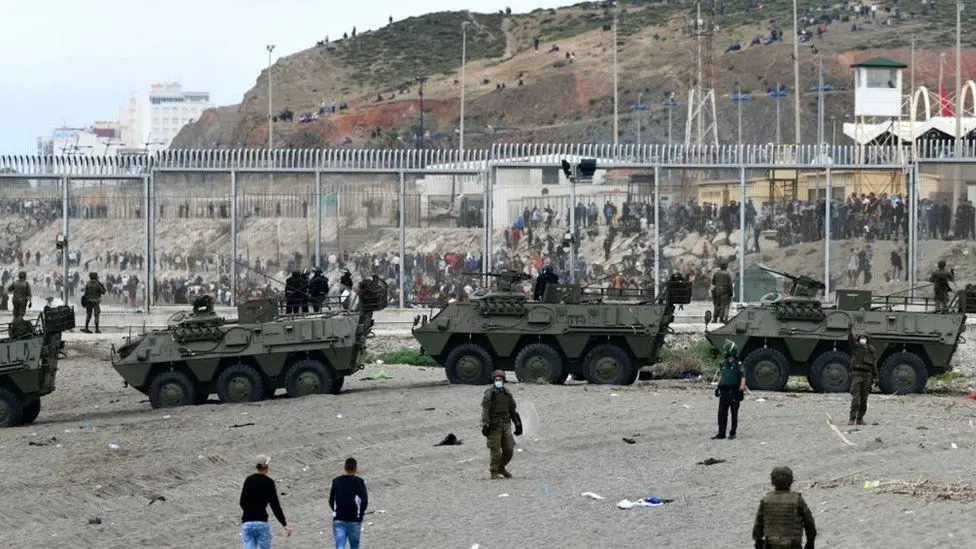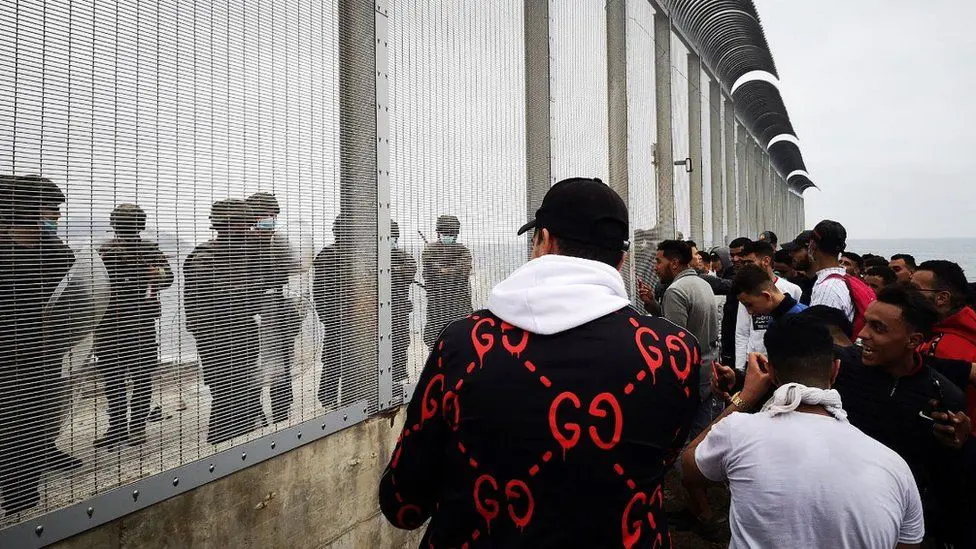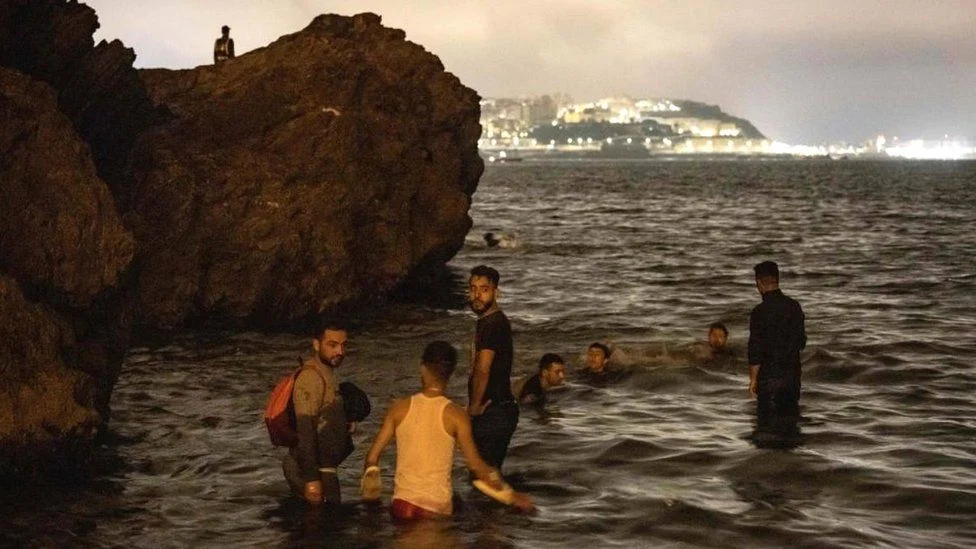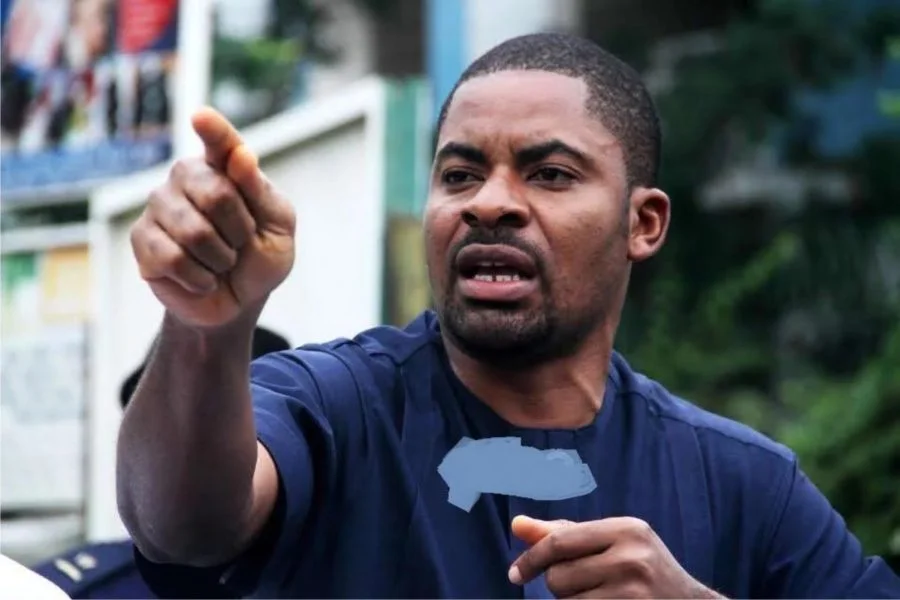At least 6,000 migrants have reached Spain’s Ceuta enclave from neighbouring Morocco, a record number over a single day, Spanish officials say.
They say the migrants – who include about 1,500 minors – either swam around the border fences that jut out into the sea or walked across at low tide.
They are said to be mostly from Morocco. Spain says it has already sent some 2,700 back – but not the minors.
Spain’s Ceuta and Melilla enclaves have become magnets for African migrants.
Spanish troops have been deployed to the beach to help border police at Ceuta’s main entry point – Tarajal, on the enclave’s south side.
Interior Minister Fernando Grande-Marlaska said 200 troops, plus 200 extra police were going to assist Ceuta’s normal 1,100-strong border force. The enclave has some 80,000 inhabitants.

Later, Moroccan security forces at Fnideq, the adjacent town, fired tear gas to disperse a large crowd of migrants at the border fence, AFP news agency reported.
Prime Minister Pedro Sánchez has cancelled a trip to Paris – he was to attend a French-led summit on financial aid for Africa. Instead, he is focusing on the Ceuta crisis, and he promised “maximum firmness” in restoring normality to the enclave.
At the other enclave, Mellila, 86 sub-Saharan Africans got in on Tuesday via its southern jetty, which marks the border with Morocco.
Melilla has a formidable border fence, and several hundred more migrants were blocked by security forces, Spain’s Efe news agency reports.
Spanish officials quoted by Efe said Moroccan guards had helped the Spanish forces in Melilla. Some migrants threw stones at the Spanish forces, they said.
Spanish media said it was different in Ceuta, where Moroccan border guards stood by and watched as migrants took to the sea to try to reach the enclave.
Most of the migrants were said to be young men, but there were also several families. Many had used inflatable rings and rubber dinghies.
They started arriving in Ceuta at 02:00 (midnight GMT) on Monday, but the number soared during the day. At least one died during the crossing.
Last month, more than 100 migrants arrived at Ceuta’s Tarajal entry point. Most were sent back, except about 30 minors whose ages were confirmed by medical tests.
The arrivals come at a tense time in Morocco’s relations with Spain. Morocco is angry that the leader of the Polisario Front, Brahim Ghali, has been receiving treatment in a Spanish hospital.
Polisario has been fighting for the independence of Western Sahara for decades. The territory was occupied by Spain until 1975, when Morocco took control of most of it.
Morocco’s foreign ministry last month accused Spain of admitting Mr Ghali under a false name, without telling Morocco.

The Spanish government played down the Western Sahara tensions on Tuesday, saying it was a separate, unconnected issue.
The EU border force Frontex reports that illegal migration to Spain’s Canary Islands – off the Moroccan coast – has surged this year. In most cases sub-Saharan Africans make perilous journeys in rickety boats and drowning is common.
However, the overall number of undocumented migrants reaching Europe so far this year remains far below the levels seen in 2015-2016.
BBC






2 Comments